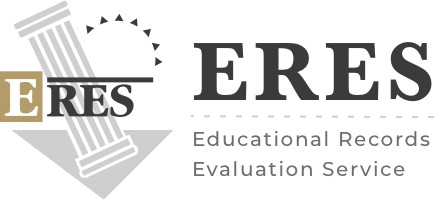Blog
Steps to Get Selected in US University for International Students

The dream of studying in the United States has become increasingly sought after, making the competition fiercer than ever. "How to get selected in a USA university for international students" is a question that looms large in the minds of thousands.
With such a vast pool of talent vying for limited seats, standing out lies in one's achievements and how effectively they're presented.
After all, in university admissions, it's often about showcasing your journey, potential, and aspirations in the best light. Your application is your story; let's ensure it's compelling.
Understanding Admission Criteria
When aiming for U.S. universities, comprehending the benchmarks they utilize is essential. Enter credential evaluation services. These ensure international qualifications align seamlessly with American standards.
Importance of GPA:
This metric is paramount. Universities see the GPA as a testament to a student’s dedication and scholarly abilities. It’s not just about grades; it’s about consistent effort and understanding.
Standardized Test Scores:
Tests like the SAT, ACT, and GRE are more than just acronyms. They’re a lens through which institutions measure a student’s academic readiness. How do these scores stand globally? Credential evaluation services shed light on this.
Extracurricular Activities:
Beyond academics, the pursuits outside the classroom paint the fuller picture. It’s less about quantity and more about the depth of engagement. Leadership, passion, and commitment in selected activities can be as telling as any grade.
When seen through the expert lens of credential evaluation services, every component forms a composite image of the aspiring student.
Building a Strong Application
For international students, the journey to an American university often starts with submitting a transcript of higher education, which serves as a record of academic accomplishments. However, a strong application extends beyond just academic transcripts.
Personal Statement:
Think of this as the narrative of your academic journey. It’s where you connect the dots between your experiences and your aspirations. When crafting this, infuse it with personal stories demonstrating your passion and drive.
Align these anecdotes with your academic goals to create a compelling narrative that resonates with admission officers. Your higher education transcript shows your past; let your statement illuminate your future.
Letters of Recommendation:
These letters vouch for your credibility. Choosing referees who know your strengths and can articulate them convincingly is essential. A genuine letter, rich in detail, can reinforce the claims on your transcript of higher education and paint a holistic picture of your capabilities.
Application Resume:
While your transcript of higher education showcases your academic prowess, your application resume highlights your versatility. Carefully curate a list of your achievements, awards, and pivotal experiences. It’s a testament to what you bring beyond just grades.
While the transcript of higher education is foundational, weaving in a potent personal statement, insightful recommendations and a well-curated resume will make your application more credible and strong.
Demonstrating Interest
Meeting the academic benchmarks and showing genuine enthusiasm towards your chosen institution is crucial in university admissions. Credential evaluation services affirm your academic standing, but your actions and interactions attest to your interest.
Campus Visits:
You communicate about your commitment by physically touring a university. Such visits often leave lasting impressions, signaling that you genuinely consider the institution.
Attending University Fairs:
Engaging directly with university representatives through fairs provides a platform to ask questions and showcase your genuine interest. It’s also a tangible way of complementing the insights from credential evaluation services.
Regular Communication:
Touching base with admission offices or departments helps keep you top of mind. The trick is to communicate relevant updates or queries without appearing overly persistent.
Considering Backup Options
Diversifying your university applications is prudent in today's competitive academic landscape. Credential evaluation services can ascertain your academic compatibility, but strategic application choices can ensure success.
Applying to Safety Schools:
Consider safety schools alongside your top-tier university choices. These institutions might have less rigorous admission criteria but still provide quality education. Credential evaluation services will give you a clearer picture of where you stand, aiding in making informed choices.
Early Action vs. Early Decision:
Understanding the nuances between these two is imperative. Early Action offers flexibility as it’s non-binding, while Early Decision requires a commitment if accepted. Leveraging insights from credential evaluation services can help determine which route aligns best with your profile and preferences.
Remember, while aiming high is commendable, a well-thought-out backup strategy ensures you're well-placed in higher education.
Making the Most of Interviews
The interview process is crucial:
Preparation:
Familiarize yourself with the university’s ethos, programs, and values. Practice common interview questions to articulate your thoughts confidently.
Demonstrating Passion:
Conveying genuine enthusiasm sets you apart. Share specific reasons that fuel your desire to attend, showcasing a deep resonance with the institution’s offerings.
Asking Thoughtful Questions:
Engaging inquisitively indicates a serious commitment. Pose questions that delve deeper into the program or university culture, revealing your keen interest and thorough research.
Mastering the interview is pivotal in securing a spot in a U.S. university for international aspirants.
Final Words
Embarking on the journey to study at a U.S. university requires authenticity, preparation, and initiative. Remember, while acceptance is a goal, any rejection is merely a detour, not a reflection of your true worth or potential. Stay positive persistent, and believe in your unique journey and capabilities.
Start Now
ERES
Educational Records Evaluation Service helps Non-US educated individuals to receive their US equivalences with our credential evaluation reports.
Services
Contact us
Tue - Fri: 10:00 to 16:00 ( PST )
4773 Mangels Blvd, Fairfield, CA 94534, USA.
© 2024 Educational Records Evaluation Service. All rights reserved.












